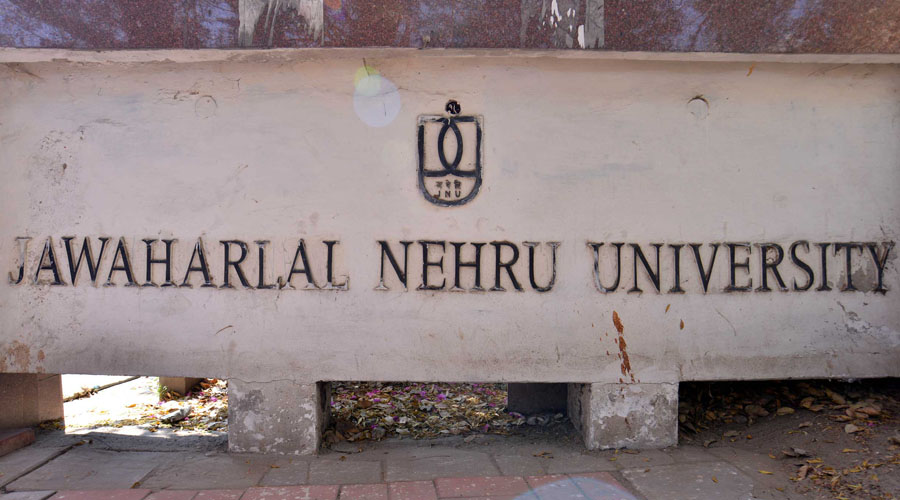MA students at the Centre for Historical Studies of Jawaharlal Nehru University (JNU) are worried about the impending online first-semester exams at a time many of them have said they are not mentally prepared because of the toll the pandemic has taken on them.
With the exams set to begin on May 15, many students or their family members are down with Covid, with several requiring hospital care.
The JNU administration has allowed its centres and faculty members to go ahead with online exams for the first semester. Many centres, or departments, have already held online exams.
“These are very unusual times. Many students have themselves suffered. Parents and relatives of many students have been in hospital. Neither the university nor any faculty member spoke to us to find out if we are mentally prepared for the exam,” a student said, preferring anonymity.
“We have written to the head of the department multiple times, requesting that a meeting of students and faculty be held, or the exams be suspended for now. But we have not received a response,” the student added.
Several academics said many other universities might switch to online exams this session because of the freedom given by the University Grants Commission (UGC), the higher education regulator.
The UGC on Thursday issued a letter to all universities asking them to defer offline exams scheduled for May, but allowed the higher educational institutions to conduct tests online “after assessing local conditions”.
“However, for conduct of online examinations, HEIs (higher educational institutions) may decide suitably after assessing local conditions and ensuring that they are prepared in all respects following advisories/guidelines/directions issued by the central/state government, ministry of education or the UGC from time to time to prevent the spread of Covid-19 and for the safety and health of all stakeholders,” the letter, issued by UGC secretary Rajnish Jain, said.
A UGC official said the commission expects the universities to use their “wisdom” and take “judicious” decisions on online exams.
Delhi University (DU) had planned to start its semester exams online in the open-book mode from May 15 but have now pushed back the schedule to June 1 in view of the pandemic.
“Because the UGC has now sent this letter, many universities may go for online exams. The UGC should have disallowed online exams too,” said Rajesh Jha, a former Executive Council member of DU.
He said the credibility of online exams was questionable. Jha cited the example of Delhi Technological University where there was a sharp increase in the number of students scoring high marks in online exams that had allegedly been conducted without credible invigilation.
The JNU student who said many might not be mentally prepared for exams pointed to another problem — lack of high-speed Internet and devices such as computers and smartphones.
A survey by the JNU Teachers’ Association (JNUTA) last year had found that 40 per cent students could not take part in online classes due to lack of devices and stable Net connections.
“We have to write the answers on paper and take pictures and upload them. We need good devices and strong Internet connectivity. Many students do not have these. The university never bothered to provide us the logistics,” the student said.
The UGC official said proper guidelines for the conduct of exams would be issued soon to provide clarity on the assessment process and the academic calendar.
Silence on Covid
The JNUTA said two proposals had been submitted by the faculty to vice-chancellor M. Jagadesh Kumar requesting for Covid care on the campus but no action had been taken.
The faculty at the Centre for Social Medicine and Community Health had suggested the formulation of a comprehensive Covid-care plan while teachers at the School of Life Sciences had proposed the conversion of liquid nitrogen to medical oxygen in the campus laboratories.
According to the proposals, there should also be Covid counselling over phone for those in home isolation, an isolation centre and an oxygen support unit on the campus to provide primary care to the JNU community.
The Telegraph sent an email to VC Kumar asking about the demands but obtained no response.










